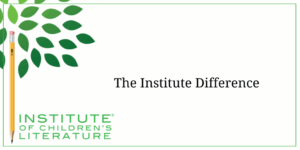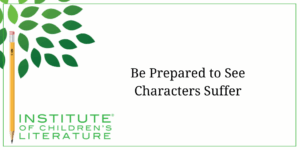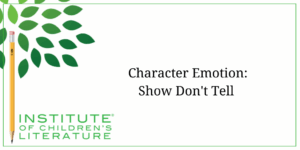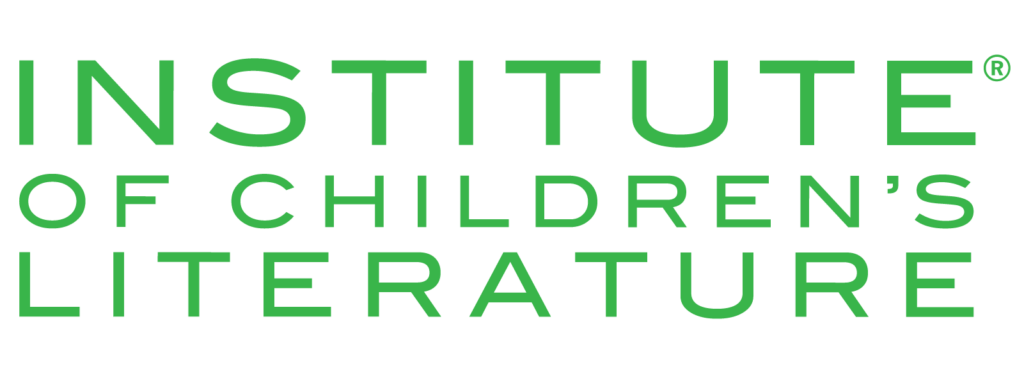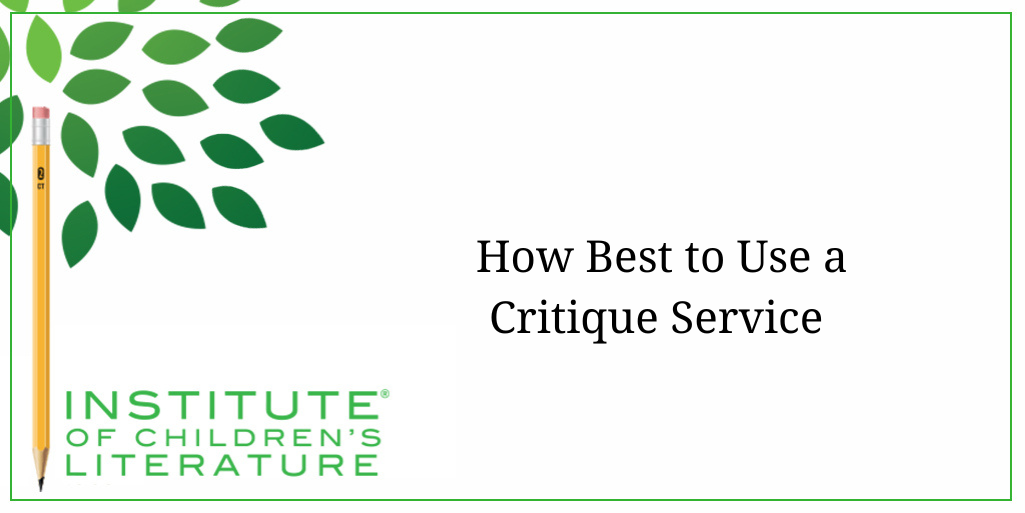
- Date: April 17, 2025
- Author: Jan Fields
- Category: Writing for Children Blog
- Tags: critique groups, critique service, Revision
We teach our students how to write and get published!
View our Course Catalog >
How Best to Use a Critique Service
For most writers and most writing careers, the bulk of the feedback that you receive on your writing will be from critique groups, critique partners, and acquiring editors or agents. None of this kind of feedback costs money. Critique groups and partners are paid for their time by the reciprocity of writers helping each other. Beta readers are usually friends and can be paid off in thanks and the occasional baked good. Agents and editors are offering feedback in order to improve a product they hope to benefit from.
After your work is published, you may receive reviews and fan mail, and those are motivated by reactions to what you have written. For any writer, the bulk of their feedback on a story is usually not costing the writer money. 
So Why Ever Have a Paid Critique?
Having said that, there are times when writers will seek out feedback that is not free. Some writers hire editors to go through long manuscripts thoroughly before publication. This is especially true— and important—for self-published books. Self-published books won't usually have the benefit of the feedback from the publisher or from an agent, so all of the feedback that normally comes from someone hired by the publisher will need to come from someone hired by the writer, since the writer is the publisher.
But even traditionally published writers sometimes benefit from the feedback and encouragement of a paid critique service. Some writers send much shorter pieces (magazine stories, magazine articles or picture books) for critique through critique services. But why would anyone want to do this?
- Answer questions about a manuscript a writer believes in but hasn't been able to place.
- Give clarity when a writer has gotten conflicting advice from different members of their critique group, revealing which advice best lines up with the viewpoint of a professional.
- Help a writer spot bad writing habits that have stood in the way of publication, thus giving the writer insight into which skills to work on in response.
- Offer reassurance for anxious writers who are unsure whether their work, class taking, and practice have resulted in professional level skills. For some writers, this kind of reassurance is almost essential before facing the submission process.
Should I Have a Critique Service Look at Everything Always?
For most of us, a paid critique should not replace critique groups or partners. If a writer has the money, it can be tempting to have a paid critique service review every manuscript before sending it out. But over-reliance on any feedback can lead to a lazy tendency not to grow and improve, since the critique service will catch and correct the problems. But if a paid editor or critique does all the heavy lifting for making all of writer's work publishable, is it really the writer's work at all?
 Also, using a paid critique for every piece can make it difficult for a writer to develop their own voice and style instead of ending up with polished work that reflects someone else's voice and style. In years past when some agents gave heavy feedback, some editors could recognize a writer represented by that house by their voice and style, because every writer went through the same pattern of changes. That is something you want to avoid. You want your writing to reflect your best self as a writer, not someone else's best self.
Also, using a paid critique for every piece can make it difficult for a writer to develop their own voice and style instead of ending up with polished work that reflects someone else's voice and style. In years past when some agents gave heavy feedback, some editors could recognize a writer represented by that house by their voice and style, because every writer went through the same pattern of changes. That is something you want to avoid. You want your writing to reflect your best self as a writer, not someone else's best self.
Also, even with a paid critique, every bit of advice given for corrections needs to be studied and understood before being implemented or discarded. First, simply because someone is a professional doesn't mean that person is always right. Even professionals are still on their own writing journey, and good writing can be subjective, despite have a strong objective core.
Grammar, punctuation, clarity, reading age are all objective standards with rules. But voice and style, though needing to align to those same objective standards, has an extra element that grows out of the experiences, emotions, and viewpoint of the writer. That means that what one professional loves, another may not and therein lies the reason why all feedback needs to be carefully evaluated and understood.
Also, understanding the feedback you get allows you to implement it in future work. If you finally grasp how to handle subjects and verbs in first person writing, you're going to need far less help with that in the future. Regular paid critiques are something you want to outgrow eventually. If you are careful to learn all you can from every critique, you will grow in your skills to the point where you don't benefit from getting a paid critique on everything and can use them only when you're really needing professional feedback, because you're trying something completely new for you or taking risks with your story that you're unsure about.
Choosing Critique Sources
Always choose carefully when seeking out a paid critique. This is a situation where a bargain isn't always a good thing. Through the years, I've seen a great many unqualified people hang out a “professional editor” sign and begin taking money from writers. Some of these people are self-published authors who have never been through the professional publishing process. These critique services aren't necessarily scams. Many truly believe in their ability to help others. But because of the subjective element to critique, bargain editors can actually set a writer back in skill development through bad advice.
To find a solid, valuable critique or editing service, seek out people who either have solid credentials in the industry, such as years of experience as acquiring editors at reputable publishers, or are backed by companies you have good reason to trust. 
Also, it's best not to make use of paid critiques from companies for whom such a service is a conflict of interest, like publishers or agents. You can sometimes get a short, paid critique from agents or editors at conferences or workshops, and that's fine. The bulk of the money often goes to help run the conference or workshop. But if paid critiques are part of the publisher or agent's company all the time, you will want to avoid such “opportunities” as publishers and agents really need to make their money from selling books, not from writers.
Whenever possible, seek out critiques that allow you to ask questions afterward to ensure you understand every bit of feedback you're given. It's not much help to have something corrected if you don't know why it was corrected so you can use the knowledge on future projects.
Paid critique services can have a beneficial effect on a writer's work. Feedback is essential to growth, and feedback from a trusted professional source is valuable. It can help speed a writer's growth and make a difference in selling the piece you've brought for feedback.
But paid critique services or paid editing isn't for everyone. They can be expensive. And you need to be the kind of person who is open to learning from specific correction. Only you know if it's the right route for your work and style, but it's a valuable tool if you choose to use it and use it wisely.
Related Articles for Critique Services
With over 100 books in publication, Jan Fields writes both chapter books for children and mystery novels for adults. She’s also known for a variety of experiences teaching writing, from one session SCBWI events to lengthier Highlights Foundation workshops to these blog posts for the Institute of Children’s Literature. As a former ICL instructor, Jan enjoys equipping writers for success in whatever way she can.

